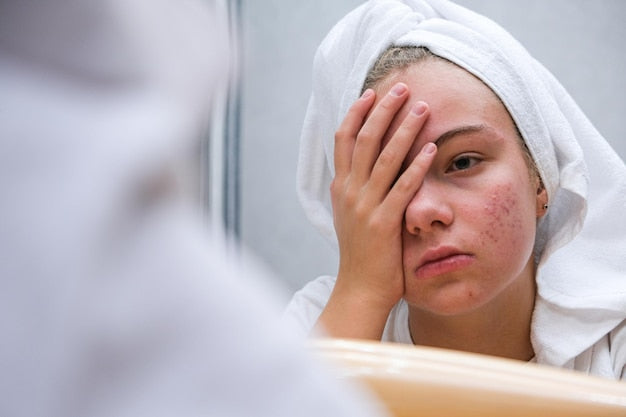Medications That Trigger Folliculitis: Are You Aware?
As a beauty professional, it's vital to be aware of the different skin conditions that can impact your clients during treatment sessions. One such condition is folliculitis, which is characterized by small red bumps or white-headed pimples surrounding hair follicles. While folliculitis can arise from various causes, a less commonly discussed trigger is certain medications. By identifying these medications that lead to folliculitis, you can better advise your clients and modify their skincare regimens accordingly.

Understanding Folliculitis
Folliculitis is the inflammation or infection of hair follicles, typically caused by bacteria, fungi, or various forms of skin irritation. This prevalent condition often resembles an acne breakout and can result in pain or scarring if not addressed properly. For those in the beauty industry, grasping the nuances of folliculitis is essential for effective client consultations and personalized skincare planning. If you're new to this condition or seeking a refresher, the Mayo Clinic provides comprehensive insights on the topic.
How Medications Influence Folliculitis
Medications Linked to Folliculitis
Several medications have been identified as connected to the onset of folliculitis, making it crucial to be cautious:
- Corticosteroids: Designed to minimize inflammation, these steroids can inadvertently lead to a type of folliculitis known as steroid acne. Clients utilizing corticosteroids might develop clusters of inflamed follicles.
- Antibiotics: Broad-spectrum antibiotics can disturb the skin's natural bacterial environment, allowing harmful bacteria such as Staphylococcus aureus to thrive and instigate folliculitis.
- Immunosuppressants: Typically used to suppress immune activity in cases of autoimmune disorders or post-surgery, these medications can increase susceptibility to folliculitis by curbing the bodys ability to combat skin infections.
- Antifungal medications: Surprisingly, drugs aimed at treating fungal infections can sometimes provoke folliculitis by altering the skin's natural flora.
For additional information on how medications may induce folliculitis and the various contributing factors, explore this comprehensive resource.
How Beauticians Can Assist in Managing Folliculitis
As a skincare expert, recognizing medication-induced folliculitis can significantly enhance your clients skin health. While some cases may necessitate a dermatologist's expertise, beauticians can implement several supportive strategies:
- Gentle Skincare Products: Recommend non-comedogenic and hypoallergenic products to prevent further skin irritation.
- Soothing Techniques: Suggest calming home remedies like warm compresses to help ease irritation.
- Consistent Skincare Regimens: Advocate for consistency and patience in skincare routines to better manage flare-ups.
Preventing Folliculitis: Tips for Client Care
Educating clients about skincare and their medication routines can help prevent folliculitis. Key areas to focus on include:
- Instruct clients on appropriate bathing and grooming practices to keep hair follicles clear.
- Stress the importance of mentioning any new skin issues to their healthcare providers to review and adjust medications as needed.
- Encourage a balanced diet and proper hydration to promote skin health from the inside out.

FAQs: Medications that Trigger Folliculitis
Beauty professionals often encounter questions about skin conditions. Here are some responses to common inquiries:
Can medications truly cause folliculitis?
Yes, certain medications can disrupt the natural bacterial balance on the skin or irritate the hair follicles, leading to folliculitis. Identifying these factors can assist in managing the condition.
What advice should I provide to clients with folliculitis?
Guide them to maintain gentle skincare practices, avoid harsh scrubbing, and consult with healthcare professionals if symptoms persist or worsen.
Are there medication alternatives that do not trigger folliculitis?
Clients should consult their healthcare provider regarding alternatives. In some instances, altering dosages or switching medications may lower the chances of developing folliculitis.
In the beauty industry, knowledge is empowering. Understanding how medications trigger folliculitis equips beauticians to provide more thorough advice, ensuring the ongoing health and radiance of their clients' skin.
For a more in-depth look into the links between folliculitis and the immune system, visit this article. Additionally, consider the role of lifestyle adjustments in reducing body acne in this guide. To understand how your skincare may combat fungal infections, check this ultimate guide. Lastly, for a deeper understanding of folliculitis, visit MSD Manual.

